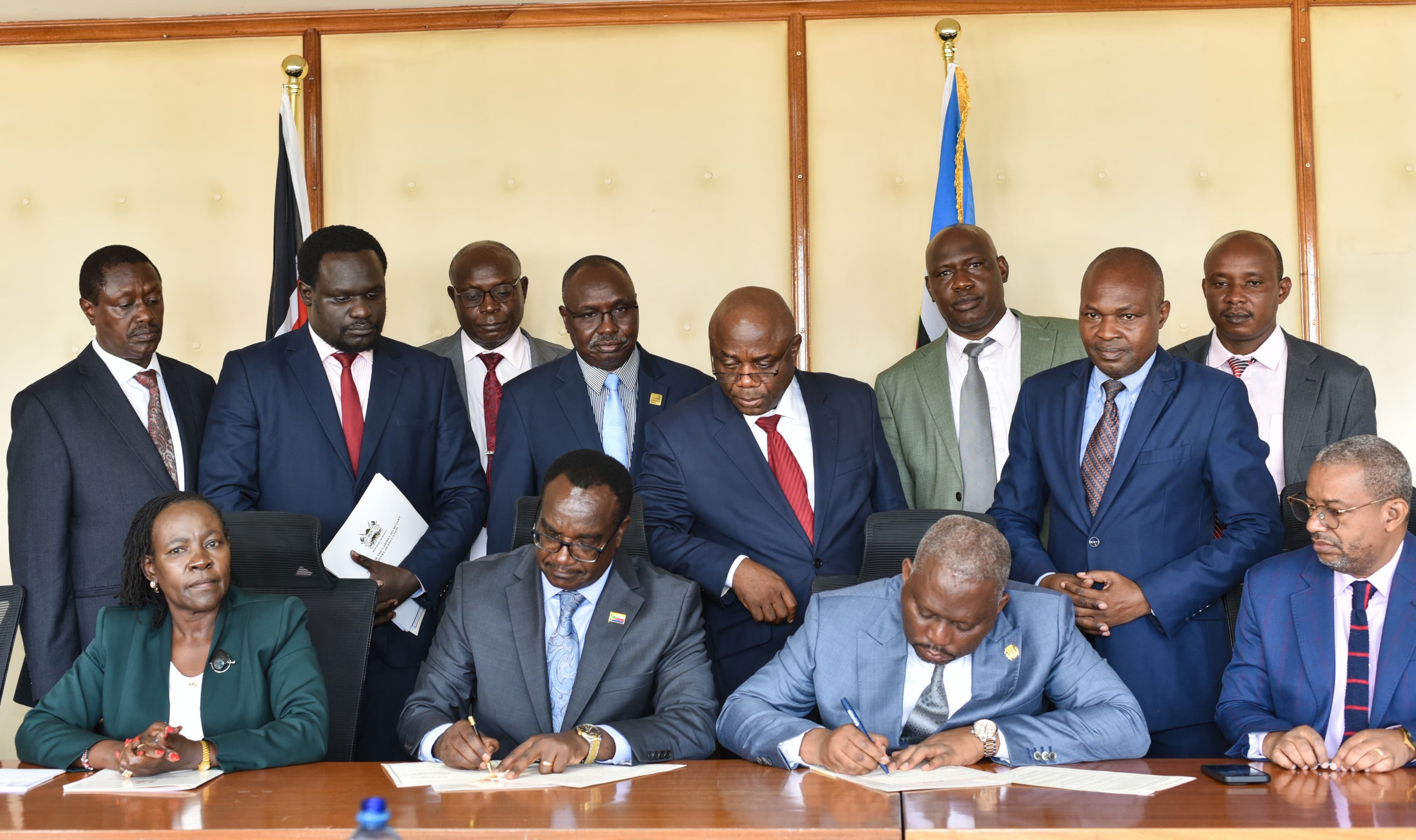
 DRC delegation led by TVET Minister Ghislain Thierry Maguessa Ebome when they visted Education CS Julius Ogamba, February, 4, 2025. /JULIUS OGAMBA/X
DRC delegation led by TVET Minister Ghislain Thierry Maguessa Ebome when they visted Education CS Julius Ogamba, February, 4, 2025. /JULIUS OGAMBA/XA delegation from the Democratic Republic of Congo is in Kenya on a five-day visit to benchmark on Technical and Vocational Education and Training.
Education CS Julius Ogamba said the team is led by DRC Minister of Technical and Vocational Education, Ghislain Thierry Maguessa Ebome.
"Our discussions centered on deepening bilateral ties in technical and vocational education as we explored opportunities to expand access to quality, relevant TVET programmes for our youth," Ogamba said.
The CS said the visiting minister and his delegation will tour select TVET institutions during their stay as part of the benchmarking.
TVET programmes help students develop skills that match market demands and address skills gap and ensure businesses have the talent they need to grow.
Most TVET programmes offer a hands-on learning approach, offering students the confidence they need long before they enter the job market.
Data from the Technical and Vocational education and Training Authority indicates that Kenya has 2,754 accredited TVET institutions offering a varied array of certificate and diploma courses.
Last year, President William Ruto revealed that the government was keen on investing in TVETs to push the potential of young people to contribute to economic growth as envisioned under the Bottom Up Economic Transformation Agenda (BETA) and create employment for millions of skilled youth.
“As we implement policies, programmes and projects which create jobs for the youth, we must simultaneously equip millions of young Kenyans with the education, training and skills necessary to enhance their productivity in a dynamic, globalised and competitive labour market,” Ruto said on March 26.
He made the remarks during the centenary celebrations of TVET in Kenya at the Nyeri National Polytechnic.
The government allocated Sh28.3 billion to TVET institutions in the current financial year and announced plans to hire 2,000 TVET tutors, with the goal of increasing the total number to 4,000.
“We intend to keep raising the budgetary allocation in future until we achieve an optimal level of investment,” the President said.
Kenya's investment in TVETs will undoutedly offer invaluable insights to the DRC delegation during its visit.
DRC is currently facing a humanitarian crisis following a rebel attack on the eastern part of the country, which has sparked mass displacement.
Besides the crisis, Congo faces the challenge of ensuring universal primary education and expanding opportunities for post-primary education and training for its youth.
A World Bank working paper on changing the trajectory of the country's education and training for youth in the country recommended that policy should focus on three issues to raise the educational attainment of young people who will enter the labour force in the next 10–15 years.
They include ensuring the completion of quality primary education and the creation of opportunities for alternative education and training for out-of-school children under the age of 15.
The paper also recommended the reorganisation of the secondary education and technical/vocational education and training to move towards universal completion of eight years of education.
DRC education system is such that after six years of primary education, students can enter either the long cycle formal secondary education programme comprising two years of lower secondary education followed by four years of higher secondary education, or the post-primary vocational programme, which offers courses varying from 1–3 years.












